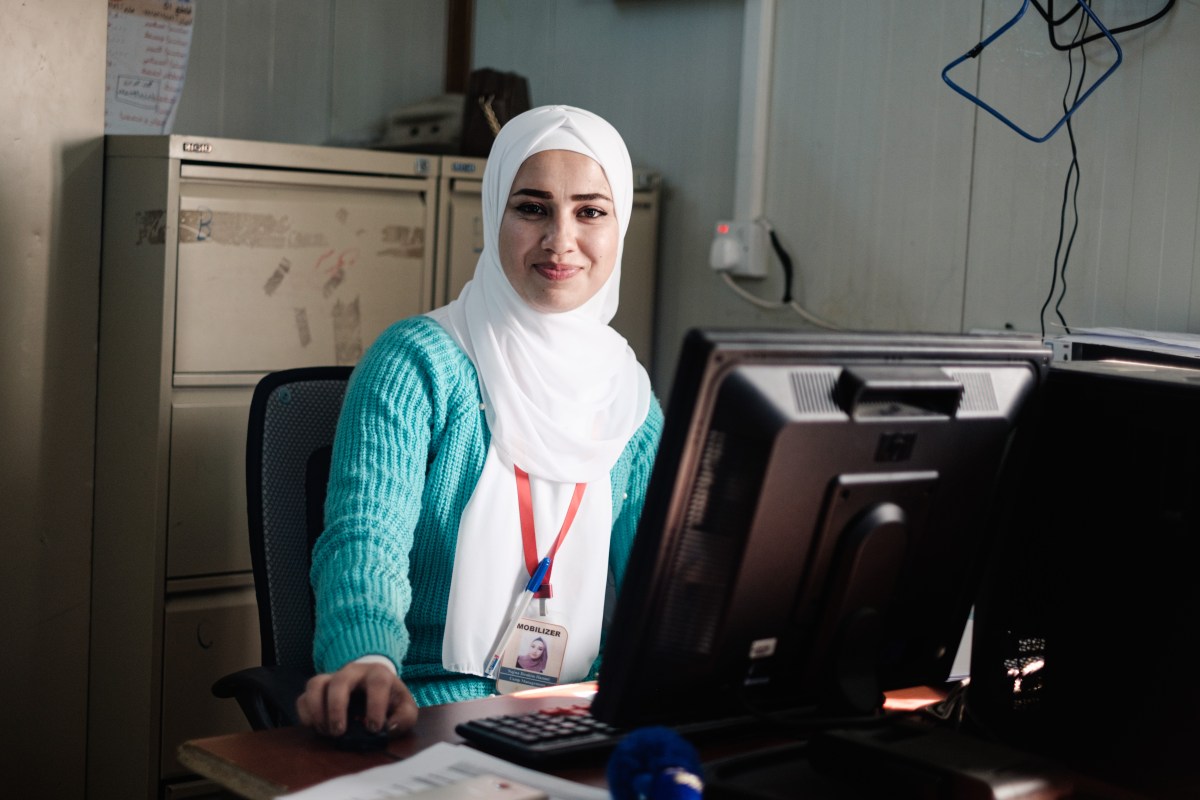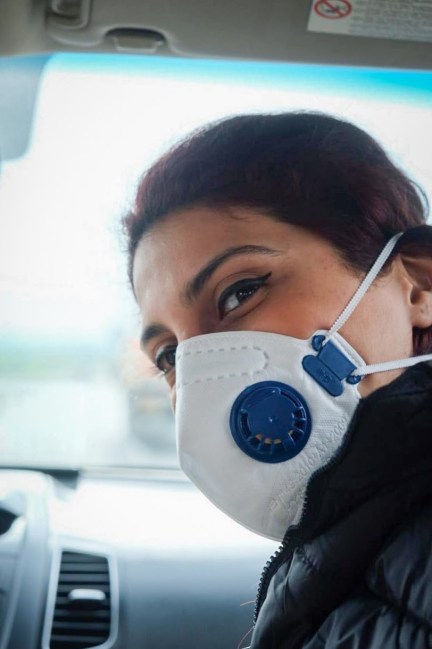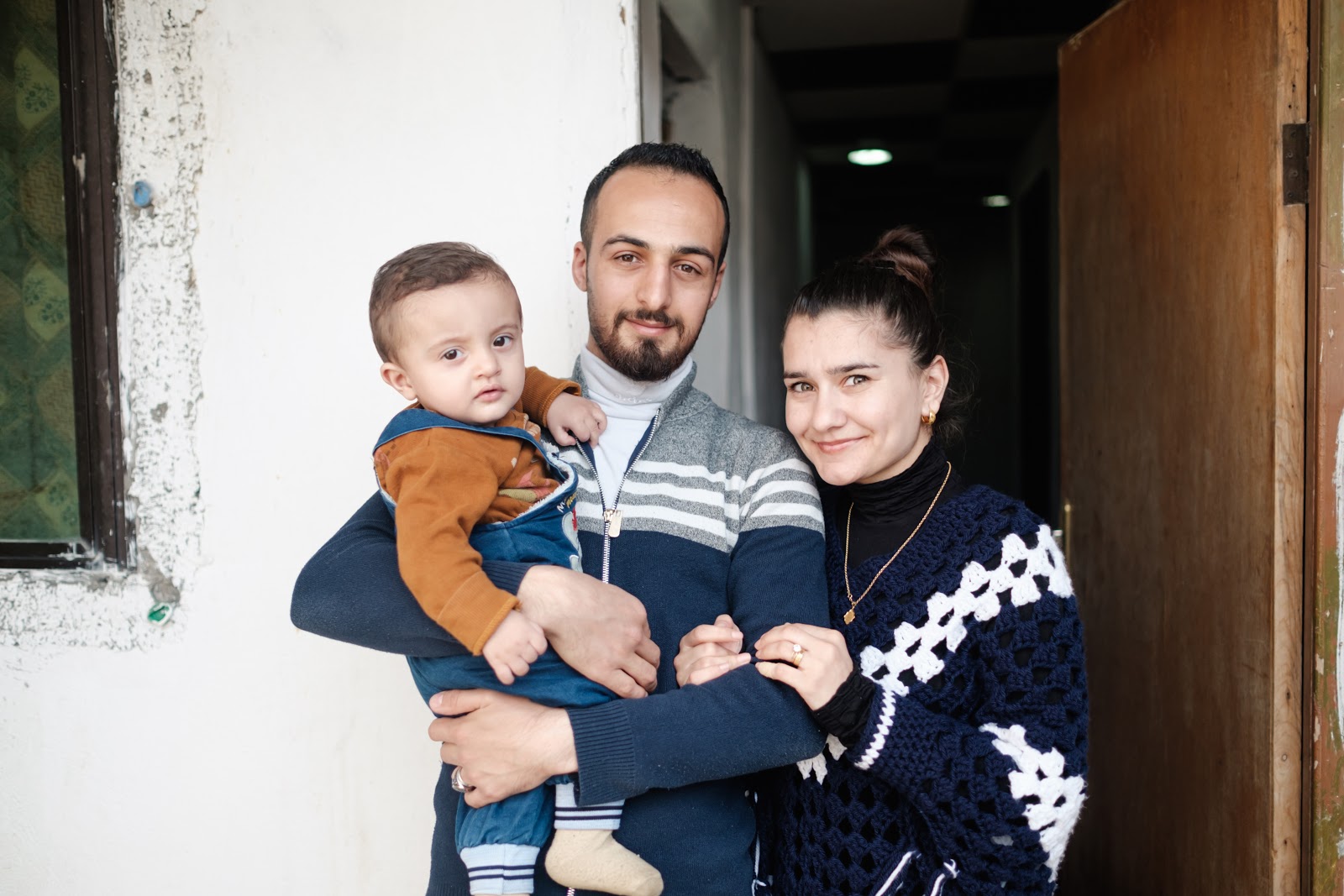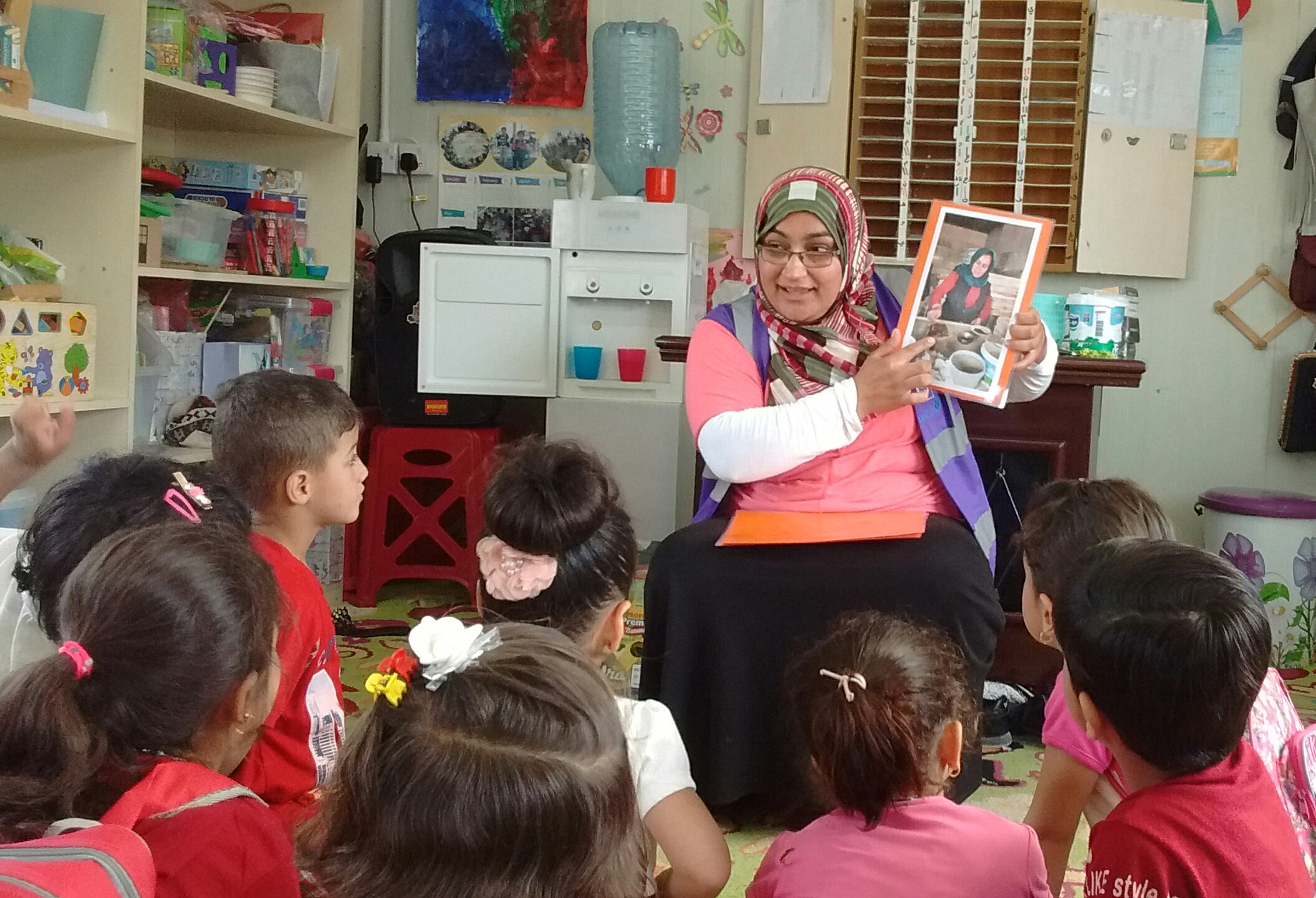
BREAKING: Coronavirus is Affecting Refugees—Here’s What We’re Doing
How is coronavirus impacting our refugee friends in Iraq, Syria, and Mexico? How can we love anyway in the face of panic and the spread of disease? In the face of a pandemic, this ten-minute episode breaks down how COVID-19 is affecting refugees and our work.
Share this episode
Show Notes
As coronavirus cases grow worldwide—including in many of the places we serve—this short breaking episode shares how the virus, also known as COVID-19, is impacting our displaced and refugee friends.
On March 11, the World Health Organization categorized this coronavirus as a global pandemic.

The future is uncertain. No one knows how widely this disease will spread or how bad the effects will be. But we’re committed to our friends around the world and paying special attention to those living near Iran, where thousands of cases have been reported.

Here’s how: We continue to listen to their most pressing needs. And we’re delivering the kinds of aid that reduce their vulnerability: food and warm clothes to help immunity, mobile health clinics in places where healthcare is absent, and jobs that bring stability.
On this breaking episode of Love Anyway, we hear updates from Preemptive Love team members:
- Erin Wilson, Senior Field Editor
- Jessica Courtney, Vice President of International Programs & Founder
- Ben Irwin, Director of Communications & PR
We’re committed to the work you’ve entrusted to us. We’re not going anywhere. On this episode, we break down:
- How coronavirus is affecting refugees
- How coronavirus is affecting our work
- How we can choose to love anyway in face of fear
As you’ll hear in this episode, Jessica Courtney knows that pressing in to help those in crisis, and those rebuilding their lives is urgent.
Here she is, talking about one of our newest projects—a maker space for refugee women to invest in their businesses while their kids are cared for—and why we’re moving forward.
Want to stay in-the-know? Text “CV UPDATES” to 72000 to get the latest on the coronavirus and how it’s affecting our work.
You can help refugee families affected by coronavirus. Give now.
Additional Resources
Full Transcript
Erin: As the number of coronavirus cases grows worldwide—including in many of the places we serve—we’re breaking in to share how the virus, also known as COVID-19, is impacting our displaced and vulnerable friends in Iraq, Syria, and Mexico.
I’m Erin Wilson, Preemptive Love’s senior field editor in Iraq. And this is the Love Anyway podcast.
MUSIC
Erin: Today, we’re exploring how our friends who are refugees or have been displaced are hit particularly hard by widespread crises like the Coronavirus.
In the part of Iraq where I live, schools are closed. The government here just announced that their offices will be closed until the end of March, with the exception of hospitals and select emergency services. Many public gathering places have been forced to close, and from what I can see, people aren’t going out to busy places unless they have to.
At refugee camps in northeastern Iraq, near the border with Iran, concerns over coronavirus are grave. Iran has become one of the epicenters of the virus, with thousands of reported cases so far, and many believing the true number to be much higher.
And as of this update, the border between Iran and Iraq is now closed to non-commercial traffic.
Iraq’s economy depends heavily on goods from Iran. Within hours of the border closing, people began lining up for gas, waiting all night in fear that it would run out. Because Iraq depends so heavily on imported food, many are worried about food shortages coming next.
Erin: Continuing to deliver essentials to Syrians, whether inside Syria or displaced outside the country, is complex at the best of times.
Jessica Courtney, our vice president of international programs, knows that pressing in to help those in crisis, and those rebuilding their lives is urgent. Here she is, talking about one of our newest projects—a maker space for refugee women to invest in their businesses while their kids are cared for—and why we’re moving forward.
JESSICA UPDATE
MUSIC
Erin: Here’s Ben Irwin, who leads our communication team here at Preemptive Love.
Ben: Coronavirus is already impacting our daily work—making our work more vital than ever, precisely because of what it could mean if the coronavirus spreads widely in places like Syria or Mexico or Iraq. If this happens, refugees in crowded shelters with limited access to medicine will be among the hardest hit.
Millions of displaced families in Syria are at high risk. They are chronically exhausted from years of living in survival mode. Many are malnourished. Continuous exposure to cold and rain have compromised their immune systems, and they are living in close quarters with each other.
In other words, they are living in the perfect conditions for disease to spread quickly. If the virus spreads there, it will be a disaster for displaced families.
And for the million-plus Syrian families fleeing Idlib toward the Turkish border, who have yet to find a safe place to stay, the conventional means to stop the spread of disease are impossible. How do you wash your hands frequently when you have no source of water? To do the things we know helps stop the spread is a luxury much of the world can’t afford.
The border into Syria is almost completely closed, too. It’s already extremely difficult to get aid into Syria. Measures meant to stop the spread of disease also stop the spread of relief for those who need it most.
This is one reason why it’s vital to source aid as locally as possible whenever we can. The emergency food rations we provided after Turkey invaded northern Syria were sourced inside the country. Our bedrolls and many of our winter survival supplies are being made locally—often by other Syrians who are also displaced and need a chance to work.
MUSIC
Erin: Many schools and childcare centers are closed across Iraq—including our space for kids inside a refugee camp. Our four tech hubs have suspended classes, as requested by the Ministry of Education, until later in the month, when we’ll reassess the situation.
In the meantime, our tech staff is working remotely to keep their skills sharp for when students and workers return. The question weighing on our minds right now is this: when can we start back up again? When will the disease run its course? No one knows the answer.
But what we do know is this: the threat of coronavirus—just like the threat of violence—is exactly why this work is needed.
Our tech hubs equip refugees and other vulnerable young people to work from anywhere, with nothing more than a smartphone. For many in Iraq, Syria or Mexico, life is far too volatile for your job to depend on your location. So we’re creating jobs that move with you. So whether you have to stay home because of the spread of disease, or whether you have to flee your home because of the spread of violence—you can keep working.
Erin: For more on how the coronavirus affects how we view and treat each other, here’s Ben again.
Ben: The question facing us right now isn’t just, “How bad will it get?” It’s, “What kind of people will we be in this moment?”
Will we react out of suspicion and fear of our neighbors? Many members of the Asian community, in particular, have reported acts of aggression and hostility and outright racism. Chinese-owned businesses are suffering. It’s not the first time a pandemic has been accompanied by the scapegoating of a whole group of people who are thought to be somehow responsible for it.
Will we be the people who love anyway, not just when it’s a war or a refugee crisis somewhere far away, but when it’s a disease that could affect any of us? When we’re not watching someone else’s crisis play out, but it’s our own?
How do we practice care and welcome, how do we love beyond the virus, while still being smart, still reducing the risk to ourselves and others, still taking every precaution possible?
These are the questions we need to be asking right now. Because if the worldwide spread of a disease like the coronavirus can teach us anything, it’s that we are more connected than we realize. We can fall together… or we can rise together.
MUSIC
Erin: As Jessica mentioned at the beginning of this episode, we continue to stand with our refugee friends.
The future is uncertain. No one knows how widely this disease will spread or how bad the effects will be. But we are committed to our friends.
We continue to listen to their most pressing needs. And we’re delivering the kinds of aid that reduce their vulnerability: food and warm clothes to help immunity, mobile health clinics in places where healthcare is absent, and jobs that bring stability.
We are committed to the work you’ve entrusted to us. We’re not going anywhere.
Visit preemptivelove.org/relief — that’s preemptivelove.org/relief — to give now and read more. You can also text “CV UPDATES” TO 72000 to get the latest on the Coronavirus and how it’s affecting our work.
When the world is scary as hell—whether because of war or disease—love anyway. I’m Erin Wilson. Thanks for listening to Love Anyway, a podcast by Preemptive Love. Season 4 is coming soon.
We’re Preemptive Love on Instagram, Twitter, and Facebook, where we provide daily updates.


